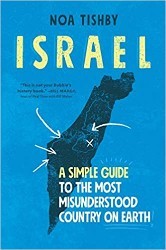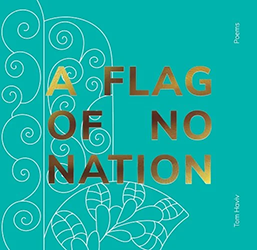Eric Alterman, long-time media critic for The Nation magazine, has written a history of America’s relationship to Zionism and the State of Israel that is likely to anger a significant segment of readers — for different reasons. Alterman’s study, which is forty years in the making, traces the battles over Israel that have taken place in both diplomatic and political arenas and in the public sphere. Alterman briefly traces the early debates about Zionism and then moves, chapter by chapter, through the key moments of Israel-American relations, from President Truman’s official recognition of Israel moments after it declared independence, to Donald Trump’s decision to move the US embassy to Jerusalem. Although his subtitle speaks of “America’s fight over Israel,” he argues that it has largely been a one-sided affair, with a strong cadre of organized support for Israel overwhelming any opposition to it. In his view, this is not a healthy situation. He thinks there should be more open debate over Israel’s policies and practices.
Alterman begins by accounting for the psychological role that Israel has played in the Jewish community and in the rise of Christian fundamentalist beliefs in Armageddon. For much of the Jewish community, Israel has become a center of identity, if not the center. And for fundamentalist Christians, Israel factors into the final conflict between God and Satan, its founding a presage of the Second Coming. Both trends have given rise to a highly organized and outspoken support network for Israel in such organizations as AIPAC and Christians United For Israel (CUFI).
Alterman is very pointed in his argument that at least since the early 1970s, debate over Israel’s policies and practices vis-à-vis Palestine has been short-circuited by what he calls the “sacralization” of the Holocaust and the quickness, in his view, to label any criticism of Israel as antisemitic. He offers anecdotes about how a chorus of personal vilification has been unleashed not only on outspoken critics of Israel, but also on many who, while supportive of Israel, have had the temerity, in the eyes of Israel’s supporters, to try to push Israel in the direction of accommodation with Palestine.
If the past is any indication of the future, Alterman can expect a heavy barrage of criticism. He is displeased with the recent rightward-leaning governments in Israel, but also with earlier left-leaning ones, and he’s especially wary of Israel’s organized supporters in the US. While much of his argument is extensively documented and footnoted, his rhetoric sometimes leads him into generalization and broad-brush characterizations of motives.
Alterman also traces the rise of a mostly left-wing opposition to Israel and its policies. Ironically, it was the progressive left that was Israel’s main support in the early days of the Zionist movement. While this opposition has made inroads into the campuses where BDS is a growing (but, in Alterman’s view, a failed) movement, it has also taken hold among younger Jews, who remain generally more liberal in their politics than the conservative donors who support major Zionist organizations. Thus, a widening gap has developed along generational lines.
In this year, which marks both the 125th anniversary of the first Zionist Congress in Basel, Switzerland, and the seventy-fifthth anniversary of the founding of the State of Israel, Alterman’s book is essential reading for anyone who cares about what happens next in the unfolding story of the Israel-Palestine conflict.





